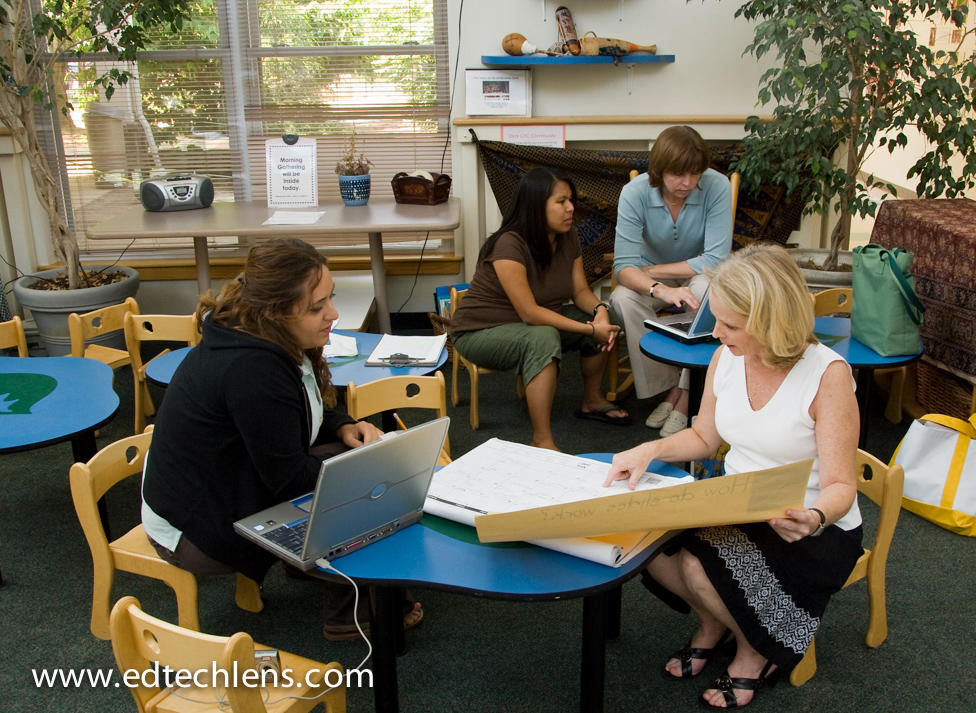
Opportunities to Mull on the Beach: Part One
Another glorious summer is nearly upon us. Longer days and fewer work responsibilities: it’s a great time to think about professional development. Opportunities abound in the summer for teachers to study, reflect and rejuvenate. In this article, part one of a two-part series, we’ll look at the Institute of International Education (IIE), which administers Fulbright awards.
In part two, which will run in July, you can learn about Hemispheres, another organization promoting global awareness and the expansion of educators’ and students’ world views. This consortium of five world studies institutes works to enhance understanding of diverse world regions by offering quality, free and low-cost resources to K-12 and post-secondary educators, including exciting professional development programs.
Fulbright Awards
Summer is “a great time to prepare to apply for a Fulbright Distinguished Award in Teaching,” according to Holly Emert, who is assistant director and program lead for the Fulbright Distinguished Awards (DA) in Teaching Program at the IIE Program for U.S. Teachers. IIE administers Fulbright awards, which are sponsored by the U.S. Department of State, Bureau of Educational and Cultural Affairs.
If you’ve got a burning educational question or idea you’d like to pursue, the Fulbright’s DA Program is worth exploring. Most people have heard of Fulbright scholarships, but fewer know about this newer program (just seven years old), which provides recipients the opportunity to pursue individual projects, conduct research, take courses for professional development and lead master classes or seminars for teachers and students. Teachers take part in an intensive professional development program abroad for three to six months.
Titles of recently funded projects show the range of projects awarded: for example, “Global Perspectives on Meeting Common (Core) Goals: Preparing Special Need Learners for the 21st Century,” “Using Intentional Talk to Illuminate Thinking: Encouraging Dialogue and Reflection in the Writing Process,” “Establishing a Math Culture in the Chicago Primary Classroom,” and “Mapping a Sense of Place: Cape Town, South Africa.”
Develop and Fulfill Your Own Inquiry Project
Fulbright Distinguished Awards are made to teachers who develop their own inquiry project and is not a teaching program, per se, since the project does not need to include teaching in the classroom.
In addition to administering the awards, the IIE helps recipients connect with educators and local schools in the host country and find a host institution abroad. It supports networking among recipients to foster the sharing of educational best practices from countries around the world.
Criteria for Fulbright Distinguished Awards in Teaching
Criteria for consideration include that the teacher is a U.S. citizen, is employed full-time at an accredited K-12 school, holds a Master’s degree or is in enrolled in a Master’s program at the time the grant begins, and has a minimum of five years full-time teaching experience – among others. Click here for the full list of criteria.
Emert says this information is intended for U.S. citizens; information on the program for international teachers is available abroad via each host country international program partner (Fulbright Commission, U.S. Embassy/Consulate, or Ministry of Education).
The IIE’s website offers a wealth of information on the program, including:
- A program overview page for U.S. teachers
- Application information (including instructional videos and other materials)
- A flyer for U.S. school administrators that explains the benefits of the program to both the educator and to her school
- A list of U.S. inquiry projects that were funded.
Tips for Applying
Noting that this is a highly competitive program, Emert offers the following application advice. “We need to see a clear design that’s relevant to the teacher’s education practice and is of value to students. Teacher training should be included as well, but the ultimate goal is positive impact on student learning,” she says. (See the final bullet point in the list above for a link to specific examples of projects that were awarded a grant.)
Developing Student’s Worldviews
The IIE Program administers all Fulbright awards, and has also recently kicked off a new program intended to double the number of U.S. students who study abroad within a five-year period, the Generation Study Abroad initiative. The program is for high school students and teachers, but Emert says, “We feel strongly that developing students’ worldviews – which can lead to the desire to study abroad – starts at the K-5 level. We invite all teachers to sign up to gain access to international education resources and the broad network of teachers who are already part of Generation Study Abroad.”
Whatever you do this summer, think big about your – and your students’ – future! And stay tuned for our July post on Hemispheres, which also offers innovative travel and study programs for teachers to develop their knowledge and skills.

